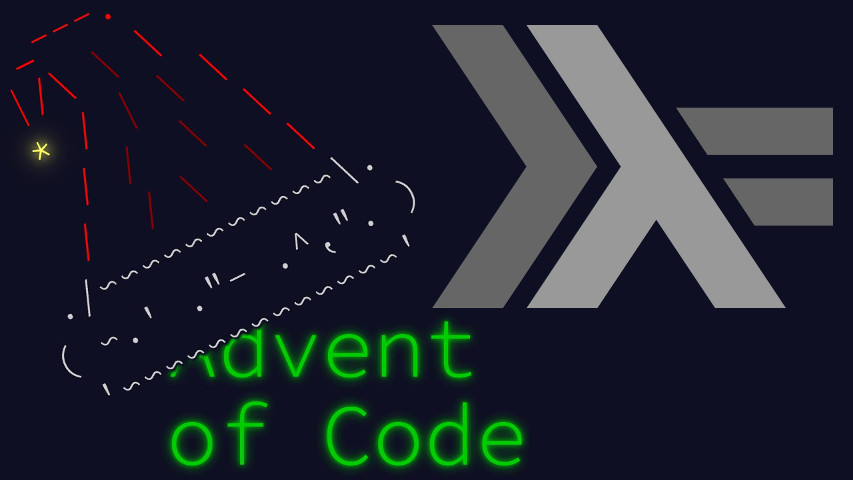Advent of Code day 11 “Plutonian Pebbles”, is a simple little implementation problem that needs a little thought before cranking up the iterations for part 2. And a few imports to get the literate Haskell started.
import Control.Arrow ((&&&))
import Control.Monad.State.Strict (State,gets,modify,evalState)
import qualified Data.Map.Strict as MapParsing is dead simple: space-separated integers.
parse :: String -> [Int]
parse = map read . wordsA single stone gives way to one or two resulting stones, directly as the problem statement says:
change :: Int -> [Int]
change 0 = [1]
change n =
let s = show n in
if even (length s)
then let (l,r) = splitAt (length s `div` 2) s in [read l,read r]
else [n * 2024]Blinking gets the entire line updated.
blink :: [Int] -> [Int]
blink = concatMap changeWe solve the problem by counting the resulting stones after 25 blinks.
part1 :: [Int] -> Int
part1 = length . (!!25) . iterate blinkFor part 2, the resulting number of stones can easily get larger than I can individually keep track of in RAM. So we’ll stop simulating, and merely count. We’ll want to memoize on a pair of remaining iteration count and starting integer, else we’d end up simulating again, just on the stack instead of a dedicated list structure, which wouldn’t be any better in terms of RAM.
blink2 :: Int -> Int -> State (Map.Map (Int,Int) Int) Int
blink2 0 _ = pure 1
blink2 i n = gets (Map.lookup (i,n)) >>= \case
Just r -> pure r
Nothing -> do
r <- sum <$> mapM (blink2 (i-1)) (change n)
modify (Map.insert (i,n) r)
pure rIt’s semi-noteworthy the first match case (something 0 yields
something 1) looks very similar to the one in the change
function. That’s a pure coincidence: in change it’s a given
by the problem statement that a stone marked 0 changes into a stone
marked 1; for blink2 it merely means no matter what’s
written on a stone, if we blink 0 times, it’ll result in a count of
1 stone.
part2 :: [Int] -> Int
part2 ns = evalState (sum <$> mapM (blink2 75) ns) Map.emptyAnd we’re done for the code. A little wrapper to invoke it all concludes it.
main :: IO ()
main = interact $ show . (part1 &&& part2) . parseThis solves today’s problem. See you tomorrow!



